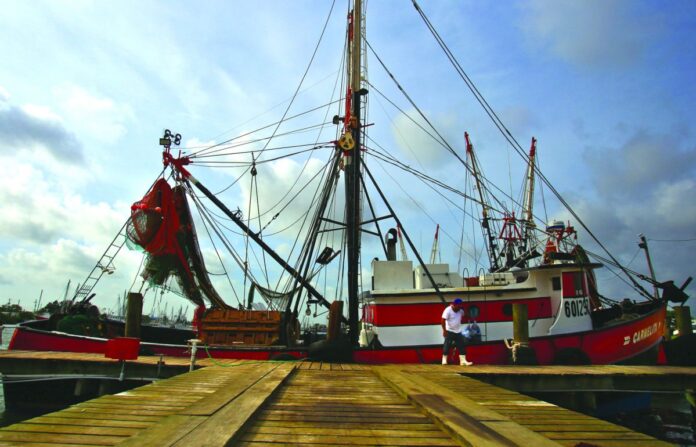BROWNSVILLE — Andrea Hance isn’t happy.
The executive director of the Texas Shrimp Association said that of the billions of dollars in RESTORE Act money — fines related to the Deepwater Horizon oil disaster in 2010 — that have been distributed to various groups in Gulf states, her industry received nothing for marketing and promotion, even though Texas shrimpers were significantly affected by the worst oil spill in U.S. history.
It may all come down to the fact that, historically, the state’s industry has never had much of a voice, thus few people outside the industry understand it. But that doesn’t make Hance, who took the helm at TSA three years ago, feel any better about it.
People assume that because the oil, which gushed from the sea floor for 87 days roughly 42 miles from the Louisiana coast, didn’t stray into Texas waters that the state’s shrimpers weren’t affected. In fact, when state and federal waters off Texas are closed to shrimping each year from mid-May to mid-July, the state’s fleet depends on the waters off Louisiana.
The Deepwater Horizon disaster began April 20, 2010, and wasn’t contained until July 15, which Hance said “couldn’t have come at a worse time” for Texas shrimpers. Six years later, the industry as a whole is still tarnished by public concerns over long-term effects on Gulf seafood, which obviously impacts Texas shrimpers, who already are struggling against cheap, farm-raised foreign imports, she said.
The Texas shrimp industry lacks the quality of relationships with state agencies and environmental groups that did receive RESTORE money — Texas Parks and Wildlife and Sea Grant for instance — that might have resulted in a portion of funds being funneled to TSA, Hance said.
Some other Gulf states have those kinds of relationships, she said. Louisiana’s shrimp industry, dealing with the same economic conditions all Gulf shrimpers face, nevertheless is considered an important part of the state’s culture and identity — at least in South Louisiana. The money moves accordingly, Hance said, adding that she’s working to forge those kinds of vital relationships in Texas.
For the rest of this story and many other EXTRAS, go to our premium site, www.MyValleyStar.com.
Subscribe to it for only $6.99 per month or purchase a print subscription and receive the online version free, which includes an electronic version of the full newspaper and extra photo galleries, links and other information you can’t find anywhere else.




